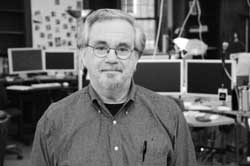Howard Budin: High Tech, Low Expectations
The new tools are only as good as the educational models that employ them
A prominent educator once said that there are two main problems in American schools: the education received by poorer students, and the education received by everyone else.
So it is with school technology. The term “digital divide” typically describes a gap in access to the best hardware, software and network connections, in and out of schools. Yet as the media scholar Henry Jenkins has powerfully described, there is also a gap in the skills needed to use technology to participate fully in modern society—skills in literacy, reasoning and decision-making, working successfully with others online and in person, and expressing oneself using a variety of media. Students who lack these abilities are at a major disadvantage, one that is reinforced in many poorer schools that use computers mainly for drills and practice.
Almost from the introduction of microcomputers into schools more than 30 years ago, I, like many other educators, have believed they are best suited for learning that is student-centered, active, inquiry-based and collaborative. This learning model has been supported by the International Society for Technology in Education (ISTE) and other organizations, yet the vast majority of American schools, richer or poorer, have never adopted it. Instead, as historian Larry Cuban described it 27 years ago in his article “Computer Meets Classroom: Classroom Wins,” computer use has reflected and reinforced a “factory” model of schooling in which teachers and texts transmit information that students memorize and recall on tests.
Ultimately, technology is only as good as the educational models that employ it. At present, our schools are failing to equip students with the knowledge, skills and dispositions they need to function well in society. Modern digital technology provides a rich array of tools that is becoming increasingly necessary for work, for personal life and for democratic citizenship, but to use them well, schools will need to rethink the skills they teach and the ways they teach them.
Howard Budin is Director of TC’s Center for Technology and School Change.
Published Tuesday, May. 1, 2012
